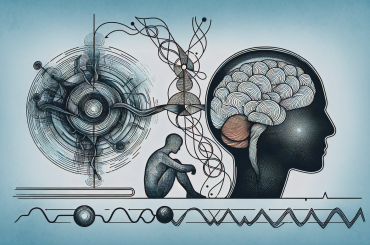Back when my 14-year-old son called me from school and said he knows he should be happy and he is a lucky boy, but he feels like he wants to die, I truly panicked. It was as if I wasn’t hearing the right words coming out of his mouth.
I knew I wasn’t equipped for this situation! I asked him if I could take him to his doctor and when he replied yes, at that point I knew my son was clearly showing signs of mental illness. I sat stunned in utter silence, panicking and paralysed, not able to believe what I was hearing. How could this possibly be?
This child has everything; good health, (or so I thought), a loving family, goes to a great school, friends and yet something as fundamental as to be able to feel good about who he was and that he was going to be okay in this world, was missing.
There was a quiet desperation, loneliness, and frustration that came along with our family trying to access services to help our son. We went through the traditional route; family physician, hospital, outpatient support, therapy, guidance counsellor. Exactly a year later, we were still spinning in the system and had not moved forward.
I will always remember that moment, etched into my memory as I realized we needed serious intervention but I was unsure of what that looked like. What was even more frightening was that the professionals didn’t know either.
The stories of families navigating the mental health care and addiction system are ones that demonstrate how overwhelming, daunting, and emotionally exhausting it can be to try and find the right pathway to help.
I now had a new job…. making calls daily and doing the research. What programs were available? What did we need? How long is the wait time? Appropriate clinical match? Model of care? Costs? Age appropriate services? Do we have a diagnosis? Are you kidding me…? How can I get a diagnosis without being able to enter the system?
Eventually I found my way as each phone call led to the next link in the chain. My research finally led me to a therapeutic placement consultant who was able to offer us a clear pathway as she helped guide our child to the appropriate clinical fit with the utmost compassion and persistent care.
So, if you don’t know what to do next, what can you do?
First, reach out to people. Let them know your child is unwell and at the very least, do not hide the fact. If we do not have the courage to speak our truth, we self perpetuate the stigma of mental illness. This is important. Mental illness and addiction is a “brain disorder’ not a moral failing. Typically, mental illness lacks the same compassion and respect, that is given to those suffering from a physical illness.
Let’s get this message out loud and clear, because people still feel that mental illness is a character flaw. Wake up society; families suffer alone, confused and desperate to access the help they need, only to feel judged by hidden expectations that society imposes on us, if we are having such troubles.
Let your Youth know that they’re going to be okay, and we will figure this out together. If your child had cancer, they would be lining up out your door with casseroles with an outpouring of love and support. Why should this be different for any one who shows signs of mental illness?
Look for other parents who have or are experiencing the same. What has worked for them? Consider support groups, knowledge exchange between clinicians and families with lived experience, sometimes just listening to each others stories and having someone be there for you can be enough to allow the family to gain their equilibrium.
Look for medical models that embrace peer support and sit on Family Advisory Boards. Get involved locally and change what currently isn’t working.
And most importantly, trust your instincts as a parent. After much time and experience, I recognize that there is no right way of being able to treat mental illness. It is often complex, nuanced and there is a close interplay between the different aspects of your youth’s life; biological, social and psychical environment.
Look for models that will treat the family not just the child. This will ensure the most effective outcomes. Don’t forget about your other children, siblings are also having a hard time trying to make sense of all the changes in the family.
Parents need to enter treatment as well, and do their own work, showing their child that we are in this together. This will help further support the notion “that there is nothing wrong with me, it is just what has happened to me.”









9 Comments
Thank you Jeanne~~ Great article!
Thank you Kathleen for your feedback, much appreciated!
Navigating the system continues to be a maze. Thanks for sharing.
Thank you Jeanne for the article. It helped me better understand the issues, struggles, challenges, & achievements that occur.
Glad that the article provided some insight Brian!
There is a very loud message in the world surrounding mental illness,sadly it is a sympathetic I’m sorry. With the silent message of, but not in my back yard.
Over time, many just give up.Glad you never gave up on your son.
Thanks Alifer for your comments. It is true, not in my backyard, often means don’t come close, as if mental illness is like catching the flu!!!
Thank you for sharing this piece. It is a terrifying, confusing and isolating journey. If you were advising someone where to start and What questions to ask from all you’ve learned, where would that be? I pray your son and family are getting the help that is moving you towards health and well being.
Thank you for your response Tsgoyna! The question you ask does not have a definitive answer, but I will try to answer to the best of my ability as a parent who has walked this pathway before. Please note that there are always more than one pathway. Look at the behaviour, as a symptom of underlying issues. Recognise that mental illness will show up differently in youth and will change with maturity , so it is challenging to treat what may not be clear. What haven’t your tried in terms of seeking professional advice? Look at therapeutic professionals who are interested in supporting the family and not just the youth.